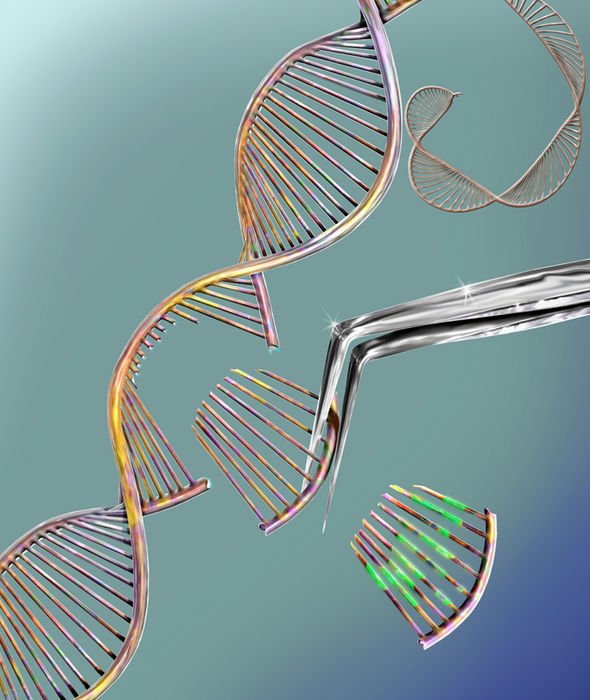Tag: china CRISPR
CRISPR genetically-modified girls ‘given ENHANCED brains’, warn scientists
CRISPR genetically-edited Chinese twins may have had their minds enhanced, scientists have warned.
Article via Express
Modern medicine has worked miracles in improving the quality and length of life. And science’s influence in medical matters could well accelerate soon, if CRISPR’s immense potential is harnessed. But news that twins in China had their genes modified before birth, in a premature case of human experimentation, shocked the world.
CRISPR holds extraordinary promise for treating and preventing a wide range of diseases, from cancer, heart disease and even mental illness.
But ethical concerns have been made about the use genome editing, in addition to fears CRISPR could be misused or even transformed into the next generation of biological weapon.
Such ethical concerns appeared validated after news broke in January about two genetically edited girls born in China.
And a leading scientist has now voiced fears the genetically modified babies may have had their brains changed.
Twins Lulu and Nana were thought to have had their genes modified before birth by a Chinese scientific team using the CRISPR editing tool.
The goal was to make the girls immune to infection by HIV, the AIDS causing virus.
And new research shows that the same alteration introduced into the girls’ DNA, deletion of a gene called CCR5, could be linked to greater success in school.
Alcino J. Silva, a neurobiologist at the University of California said: “The answer is likely yes, it did affect their brains.”
“The simplest interpretation is that those mutations will probably have an impact on cognitive function in the twins,” says Silva.
He says the exact effect on the girls’ cognition is impossible to predict, and “that is why it should not be done.”
The Chinese team, led by He Jiankui of the Southern University of Science and Technology in Shenzhen, claimed it had controversially used CRISPR to delete CCR5 from human embryos, some of which were later used to create pregnancies.
HIV requires the CCR5 gene to enter human blood cells.
The CRISPR experiment was widely condemned as irresponsible, and He is under investigation in China.
News of the first gene-edited babies also fuelled the debate whether CRISPR technology could one day be used to create super-intelligent humans, perhaps as part of a biotechnology race between the US and China.
There is no evidence that He actually set out to modify the twins’ intelligence.
It is understood the controversial Chinese scientist never reached out to researchers studying the effects of CCR5 on cognition, as he did to others from whom he hoped to get scientific advice or support.
“As far as I know, we never heard from him,” says Miou Zhou, a professor at the Western University of Health Sciences in California.
Although He never consulted the brain researchers, the Chinese scientist was certainly aware of the link between CCR5 and cognition.
It was first shown in 2016 by Zhou and Silva, who found that removing the gene from mice significantly improved their memory.
The team had looked at more than 140 different genetic alterations to find which made mice smarter.
Silva says because of his research, he sometimes interacts with figures in Silicon Valley and elsewhere who have, in his opinion, an unhealthy interest in designer babies with better brains.
This is why, when the birth of the twins began to make headlines, Silva says he immediately wondered if it had been an attempt at this kind of alteration.
“I suddenly realised holy s**t, they are really serious about this b******t,” says Silva.
“My reaction was visceral repulsion and sadness.”


